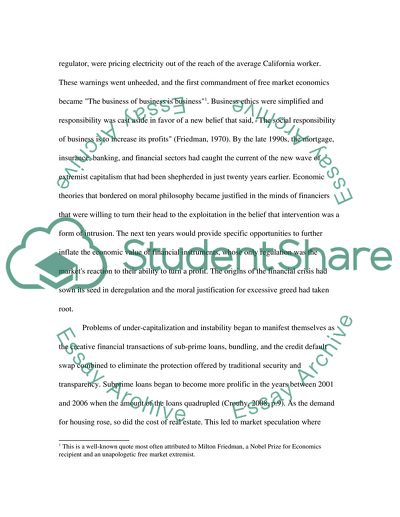Cite this document
(“The Financial Crisis of 2008: Origins, Blame, and Impacts Essay”, n.d.)
Retrieved from https://studentshare.org/history/1548988-the-financial-crisis-of-2008-origins-blame-and-impacts
Retrieved from https://studentshare.org/history/1548988-the-financial-crisis-of-2008-origins-blame-and-impacts
(The Financial Crisis of 2008: Origins, Blame, and Impacts Essay)
https://studentshare.org/history/1548988-the-financial-crisis-of-2008-origins-blame-and-impacts.
https://studentshare.org/history/1548988-the-financial-crisis-of-2008-origins-blame-and-impacts.
“The Financial Crisis of 2008: Origins, Blame, and Impacts Essay”, n.d. https://studentshare.org/history/1548988-the-financial-crisis-of-2008-origins-blame-and-impacts.


